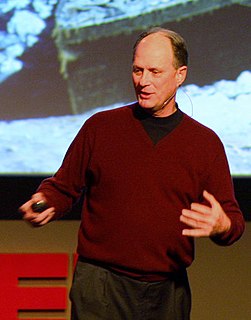A Quote by Nick Sagan
Here on Earth, we've found organisms that thrive in environmental conditions we would have once thought uninhabitable. The presence of these extremophiles suggests that life could potentially take hold on worlds other than our own.
Related Quotes
From Lehi's vision we learn that we must take hold of this safety railing-this iron rod, found alongside our individual straight and narrow path-and hold tight until we reach our ultimate goal of eternal life with our Heavenly Father. Nephi promises that those who hold fast to the iron rod"would never perish; neither could the temptations and the fiery darts of the adversary overpower them unto blindness, to lead them away to destruction"
If someone was to introduce hope and idealism into our political system, I think the tension that would create in other areas would certainly be ripe. You would think that if you bring oxygen to the organism, the organism lives. But there may be other organisms in there that thrive in darkness and in a more anaerobic environment. Watching those creatures writhe will always be interesting.
On the earth, satellite of a star speeding through space, living things had arisen under the influence of conditions which were part of the planet's history; and as there had been a beginning of life upon it, so, under the influence of other conditions, there would be an end: man, no more significant than other forms of life, had come not as the climax of creation but as a physical reaction to the environment.
We're constantly re-evaluating the potential for life. We're finding it where we didn't think it could exist, such as volcanic vents and other extreme conditions like under arctic ice. We're finding life in these incredibly harsh and dynamic conditions, so we're having to re-evaluate our own ideas of what's possible on this planet alone.
Evolutionary biologists often appeal to parsimony when they seek to explain why organisms "match" with respect to a given trait. For example, why do almost all the organisms that are alive today on our planet use the same genetic code? If they share a common ancestor, the code could have evolved just once and then been inherited from the most recent common ancestor that present organisms share. On the other hand, if organisms in different species share no common ancestors, the code must have evolved repeatedly.
I have always thought that Heaven is a place for people who had had a good life, but that is not true. God is merciful and way too good to make it so. The Heaven is just a place for people who could not be really happy while living on Earth. I was once told that people who commit suicide are taken back on Earth to repeat life from the very beginning because if they did not like it once, it did not mean they would not like it the next time. But those who did not fit in on Earth at all, ended up here. Everyone comes to Heaven in their own way.
The fact that this chain of life existed [at volcanic vents on the seafloor] in the black cold of the deep sea and was utterly independent of sunlight - previously thought to be the font of all Earth's life - has startling ramifications. If life could flourish there, nurtured by a complex chemical process based on geothermal heat, then life could exist under similar conditions on planets far removed from the nurturing light of our parent star, the Sun.
Hardships of early human life favored the evolution of certain cognitive tools, among them the ability to infer the presence of organisms that might do harm, to come up with causal narratives for natural events and to recognize that other people have minds of their own with their own beliefs, desires and intentions.






































